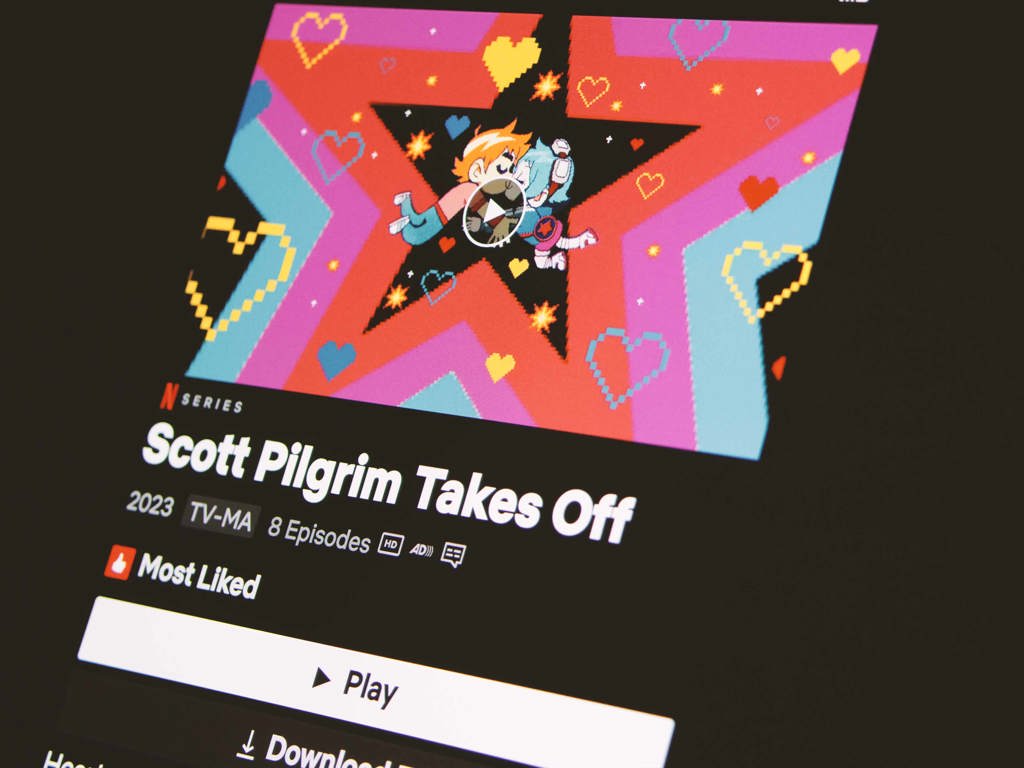The long-awaited animated adaptation subverts all expectations.
Among the ceaseless wave of film and television reboot sludge being hurled at audiences in recent years emerges the gem that is Scott Pilgrim Takes Off. Based on the 2000s Scott Pilgrim comic series and the 2010 film Scott Pilgrim vs. the World, an animated adaptation of this beloved series feels long overdue.
The show’s trailer showcases numerous classic characters drawn faithfully to the original comic designs. The trailer also presents the plot as a direct parallel to the film, showing Canadian twenty-something Scott Pilgrim on a quest to win the girl of his dreams, Ramona Flowers, by defeating her seven evil exes.
As revealed at the end of the first episode, however, the show deviates from the film’s narrative by turning it on its head and removing Scott from the role of protagonist and placing Ramona in the driver’s seat.
This switch feels jarring at first, but as the story unfolds it presents an ideal justification for a reboot.
What Takes Off does right is remain true to the flaws of its original characters while also being critical of the original text they came from. Scott and Ramona are far from perfect people, veering on toxic in parts. Takes Off critiques the romanticization of Scott and Ramona’s problematic traits by separating the two for the entirety of the series.
Instead of fuelling one another’s tendencies, they are forced to reevaluate their worldviews before meeting once again.
The show is Scott Pilgrim in name alone; he takes off from the show. A more fitting title to the events that occur would be “Ramona Flowers vs. the World,” as the show places her in charge of confronting her own exes and achieving closure before being allowed to move onward. In comparison to the film’s insinuation that Scott should be the one to fight through her past, the show demonstrates that the only way Ramona’s character was able to heal was to love and heal on her own.
The decision of Takes Off to deviate from its original message and plot also pertains to the current position of culture. When the film was released, audiences identified themselves with Scott and Ramona unbeknownst to their overt flaws, such as Scott’s misogynistic tendencies and Ramona’s avoidance and commitment issues. This awareness makes Takes Off a fascinating example of contemporary media pioneering what will likely be the next generation’s dominant cultural themes. The show is willing to exist comfortably within its fictional world while being critical of it.
Apart from the impressive work of animation in Scott Pilgrim Takes Off, it shines brightest as a self-aware critic. By acknowledging the culture surrounding 2000s and 2010s, the show actively seeks to change and challenge audiences of the 2020s. This subversion of the conventional reboot formula is refreshing and makes the show touch down as an instant classic.

